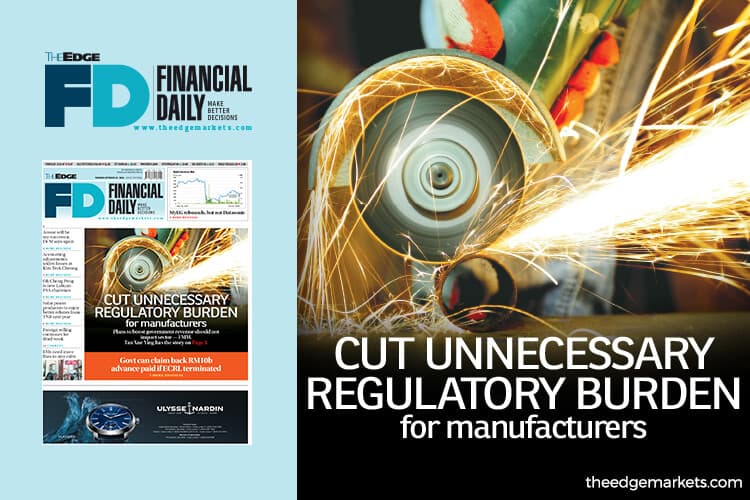
This article first appeared in The Edge Financial Daily on October 23, 2018
KUALA LUMPUR: The Federation of Malaysian Manufacturers (FMM) has applauded the government for tabling a “comprehensive and pragmatic” midterm review of the 11th Malaysia Plan (11MP), but stressed that proposals to increase government revenue as part of fiscal consolidation should not lead to additional and unnecessary regulatory burden for the manufacturing sector.
The FMM said it is important that there is close collaboration and consultation between the government and the manufacturing sector for a better fit of policies in tandem with good regulatory practices (GRPs) to enhance the sector’s efficiency and competitiveness.
“Government policies formed without proper checking [with industry stakeholders] could result in unproductive processes and financial costs that would burden the private sector,” FMM chief executive officer Dr Yeoh Oon Tean said when contacted yesterday. “This is unnecessary because policy changes made with informed views of the stakeholders would be a more hollistic and effective approach.
“In theory, the government should adhere to the GRPs, but we don’t see a strong discipline in adhering to it. The foundation of that practice is to engage with stakeholders to analyse the impacts because any policy change creates a chain of events that affects everyone, from the regulators to industry players and the public,” Yeoh added.
The federation in a statement earlier in the day hailed the revised 11MP, and said it looked forward to close and regular engagement with Putrajaya on the relevant programmes and initiatives under the 19 priority areas and 66 strategies of the six policy pillars.
Among other things, the federation, which represents over 10,000 companies in the manufacturing supply chain, said it looked forward to engagements with the government over matters concerning human capital development.
“We hope to see critical market-based levers, namely simple and transparent criteria; planned and pre-announced changes, especially in levy rates; removal of discretionary approvals, bureaucracy inconsistencies in policy implementation as well as rent-seeking activities; and incentives to reward businesses which have reduced their dependence on foreign workers and unskilled labour.
“Levy collected should also be ploughed back to help finance industry’s investments in automation and productivity enhancements,” FMM president Datuk Soh Thian Lai said in the statement.
The federation said support should be given to the Malaysian manufacturing sector as it can contribute significantly towards helping to achieve the macro strategies of productivity, investments, moving up the value chain and strengthening of exports.
Besides reduction of unnecessary regulatory burden and costs, the FMM is also hoping for a more level playing field to facilitate fair and open competition and access to market opportunities.
“The priority should be to support and promote the expansion of the economic pie to enable the reaping of higher returns to enhance business sustainability and, more importantly, medium- and long-term growth.
“Existing tax incentives such as the Reinvestment Allowance, Accelerated Capital Allowance, double deduction incentives for R&D (research and development), and export growth should be enhanced to help facilitate and spur the manufacturing sector to quickly undertake upgrading, expansion and diversification activities, including investing in Industry 4.0 technologies and innovation to achieve higher productivity and value-adding,” Soh added.